Corporate Social Responsability
The choices made by our company affect its economic results, the communities in which it operates, the environment and, more generally, society as a whole. That’s why we must all focus on taking into account and involving in our policies, decisions and actions, all stakeholders with whom the Group interacts, as customers, communities, employees, shareholders, suppliers, public authorities and non-governmental organisations.
We must adopt an ambitious approach and strive for innovation and continuous progress. The Group's extensive transformation calls for strong Corporate Social Responsibility (CSR) tailored to the new challenges facing society. This Group policy sets out the CSR priorities and commitments with a view to uniting all skills, generating shared value and helping to achieve the UN's Sustainable Development Goals.
We encourage all Group employees to live these commitments in their work. Opening up new opportunities will enable the Group to contribute to a more harmonious world and to secure its role as a leading stakeholder of the energy transition and associated services beyond energy.
Isabelle Kocher Paulo Almirante
CEO Executive Vice President
OUR COMMITMENTS
RESPONSIBLE CONSUMPTION: "Get our customers involved in the energy transition "
Consumer expectations are changing radically in every sector of the economy. Customers are playing an increasing role in the management of their own power consumption and sometimes even generating green energy.
ENGIE is committed to raising the awareness of its employees and its customers about more efficient innovative solutions that can help them manage their energy consumption, incorporate new technologies and invest in green mobility or renewable energy.
SUSTAINABLE PROCUREMENT: "Expand the scope of our commitments to our suppliers"
ENGIE has hundreds of suppliers ranging from large international groups to local SMEs and strives to establish a balanced and sustainable relationship with all of them.
The Group’s Procurement Policy sets out ENGIE’s commitments and the requirements for its suppliers in terms of competitiveness, health and safety, ethical and social issues, and the environment.
All ENGIE suppliers subscribe to the Group’s rules on Ethics, Health and Safety, Social and Environmental Responsibility.
All the Group’s employees, but particularly those working in procurement, are obliged to comply with the seven principles of the Supplier Relations Code of Conduct.
STAKEHOLDERS: "Committing to generationg shared value"
ENGIE’s activities require the Group to be active on the ground, together with interested parties such as communities, associations, local authorities and non-governmental organisations.
Sharing between the interested parties is vital for the creation of long-term value for the Group’s projects.
ENVIRONMENT: "Minimising our carbon and ecological footprint"
The risks posed by climate change, over-exploitation of natural resources (including water), erosion of biodiversity and atmospheric pollution are important concerns for society and its future.
ENGIE is committed to contributing to sustainable development through environmental protection, including fighting pollution and raising the awareness of everyone who carries out tasks for us, or on our behalf, which could cause significant environmental damage.
ETHICS: "A sustainable company is an ethical company"
The ENGIE Group Ethics Charter establishes the general framework governing the professional behaviour of each worker and defines four ethical principles:
- abide by laws and regulations
- behave honestly and foster an all-inclusive culture
- be loyal
- respect others
The Group’s ethics and compliance standards convey a strong message of zero tolerance for anti-ethical behaviour, fraud and corruption. These principles apply to all workers and partners of the ENGIE Group.
A confidential whistleblowing system (ethics@engie.com) is open to all the Group’s workers and interested outside parties.
HUMAN CAPITAL: "Foster diverse talents and competences"
The individual development of the workers and respect for their diversity are the main driving forces behind ENGIE’s performance and its human resources policy.
ENGIE prioritises ongoing social dialogue to ensure well-being in the workplace and the dedication and motivation of its workers, as well as to prevent psychosocial risks and guarantee their economic development.
HEALTH AND SAFETY: "Makes everyone's safety a priority"
For ENGIE, workplace health and safety are essential and constitute part of our DNA. All our energy is therefore directed towards one ambition: “No life at risk”.
Our policy is centred on three major commitments:
- protecting the integrity of people and property,
- more quality of life in the workplace and
- improving health and safety through professional development for all
These commitments seek to cultivate a “no life at risk” safety culture shared by all ENGIE’s employees and subcontractors.
ENGIE ensures that its employees and service providers comply with the Group’s 9 Life-Saving Rules.
HUMAN RIGHTS: "Guaranteeing constant respect for fundamental rights"
ENGIE is committed to carrying on its activities in accordance with the fundamental rights of its workers and the conventions of the International Labour Organisation.
ENGIE rejects every form of forced or compulsory labour, child labour, discrimination, modern slavery and harassment and violence in the workplace. It encourages freedom of association and the right to collective bargaining.
Lastly, ENGIE selected the standards ISO 9001, ISO 14001, ISO 50001, and OHSAS 18001 as the directives on which it bases and aligns its decisions on the quality of the services provided, the environment, energy efficiency, and the health and safety of its employees, thus fostering harmonious progress.
